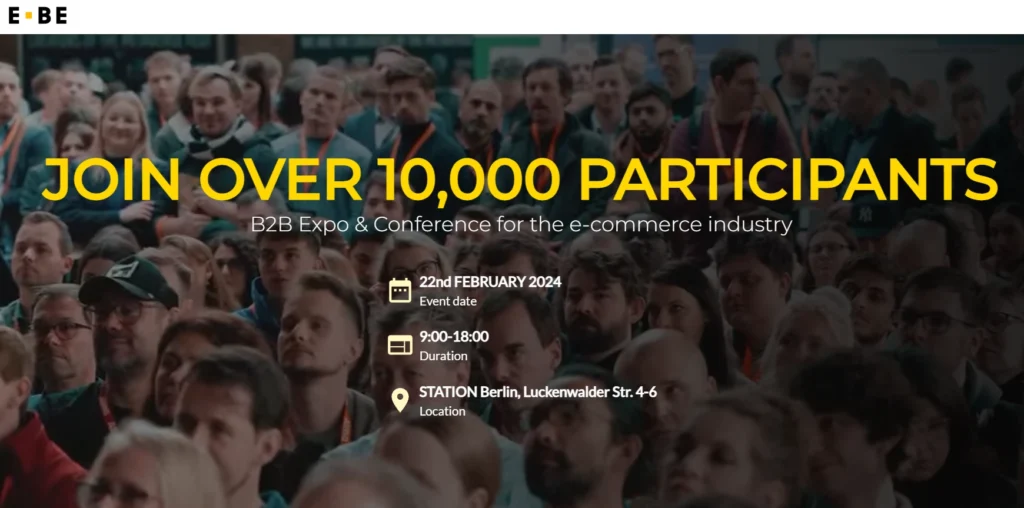Last week, the E-Commerce Berlin Expo provided interesting insights of the e-commerce Landscape in Germany, highlighting the dynamics and rapid changes shaping the industry. Here’s what we learned from the event and the emerging trends to watch.
Embracing Change: The New Constant
The consensus among industry leaders is clear: change is not just coming; it’s already here. According to a survey of Criteo, an overwhelming 9 out of 10 C-Level executives anticipate massive shifts within the next two years. The sense of imminent transformation promotes agility and foresight in strategy development.
The Rise of AI
A significant portion of the discussions at the expo revolved around the integration of Artificial Intelligence (AI) into e-commerce platforms. Within just a year, AI has surged to the forefront of the industry’s collective consciousness, becoming a critical element of innovation and customer engagement strategies. The emphasis on AI and Large Language Models (LLMs) was unmistakable, with these technologies dominating conversations and presentations. The message was clear: in the current digital era, the absence of AI integration is perceived as a missing piece in the puzzle of modern e-commerce.
Efficiency and Automation
AI and machine learning algorithms are now pivotal in automating routine tasks, from inventory management to customer service. These technologies enable e-commerce platforms to analyze vast amounts of data in real-time, making predictive insights that can optimize the supply chain, forecast demand more accurately, and personalize customer interactions at scale. By automating these processes, businesses can reduce operational costs, increase accuracy, and free up human resources to focus on more strategic initiatives.
Strategic Advantage
The integration of AI into e-commerce operations offers a dual advantage: it not only speeds up processes but also enhances the quality of decision-making. For instance, AI-driven analytics can identify trends and patterns that might not be visible to the human eye, allowing businesses to make informed decisions faster. This capability is crucial in the fast-paced e-commerce environment, where timing and precision can significantly impact competitiveness and market share.
The integration of AI technologies are not just trends but fundamental changes that will define the future of online retail. For businesses, staying informed and adaptable is key to navigating these changes successfully.
Brand Tracking Across LLMs
Another interesting point was the tracking of Brand in LLMs. AI and LLMs become central to e-commerce operations, the challenge of maintaining brand consistency and visibility across various platforms has intensified. Tracking your brand across all LLMs and models is now considered crucial for success. This involves not only monitoring how your brand is represented but also understanding the nuances of engagement and perception across different AI-driven platforms.
Key Takeaways from the E Commerce Berlin Expo 2024
- Change is the only constant, with 9 out of 10 C-Level executives expecting massive changes in e-commerce within the next two years.
- AI and LLMs are at the peak of the hype cycle, dominating discussions and presentations at the expo.
- Incorporating AI into e-commerce platforms is now seen as essential, with its absence noted as a significant gap.
- Tracking your brand across all LLMs and AI models is crucial for maintaining consistency and visibility.
- AI is pivotal in streamlining operations, enhancing efficiency, and automating processes to speed up e-commerce activities.
- The integration of AI into e-commerce operations offers a strategic advantage by improving decision-making and operational efficiency
